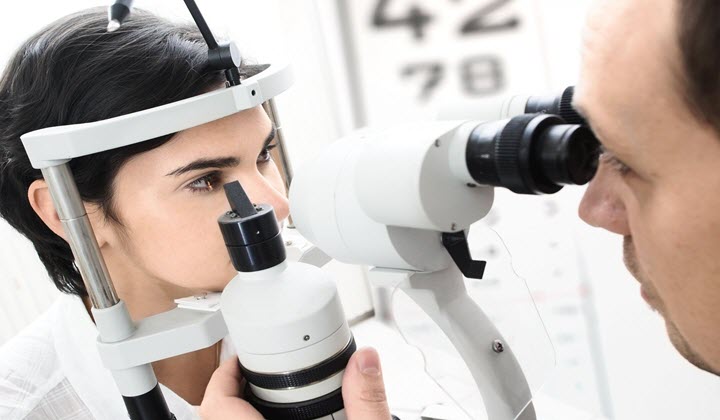
While often referred to as just the “eye doctor,” in reality there are two main types of eye doctors that most individuals will see: ophthalmologists and optometrists. Knowing now that both doctors specialize in eye health, there are several big differences between them. So let’s look at the differences between an optometrist vs. ophthalmologist.
Optometrist are known as OD’s (Doctors of Optometry) who are trained to diagnose and treat vision impairments and fit/prescribe glasses and contact lenses; however, they are not medical doctors (MD’s). Optometrists can also diagnose and treat basic eye conditions and diseases due to the increased medical training OD’s now receive. With that being said, OD’s can also prescribe certain medications. Typically, optometrists complete four years of undergraduate studies followed by four years of post-graduate doctoral training and then pass the national licensing exam. Some OD’s opt to take an additional year of post-graduate residency to gain specialized expertise. Regardless, the main role of an optometrist is to perform eye exams and correct vision problems.
The main difference between an ophthalmologist vs. optometrist is the ability to perform surgical procedures. Ophthalmologists perform surgeries such as Lasik, cataract removal, retina reattachment, and other procedures related to eye trauma. The second big difference between an ophthalmologist vs. optometrist is specialized training to diagnose and treat more complex eye diseases and conditions. Finally, ophthalmologists can prescribe a much broader-range of medications to their patients. To receive their doctoral degree, ophthalmologists complete four years of undergraduate studies, four years of medical school, and a one year post-graduate internship. As licensed physicians, ophthalmologists partake in three or more years of residency in medical and surgical training. While all ophthalmologists are trained to perform the same vision services as optometrists, many choose to focus on the surgical aspect of their profession.
The next time you go to the “eye doctor,” you will know the differences between the doctor fitting you for contacts lenses and the doctor performing Lasik surgery. One of our best clinics is the Atlanta LASIK Eye Surgery Center.
Contact Us
If you have more questions about LASIK procedures, get in touch with us.
Related Blogs

Timing is Everything: When to Consider LASIK After Nursing for Optimal Results
Timing is everything when considering LASIK eye surgery after nursing, and understanding the optimal period for this procedure is vital for both mother and baby.

Cataract Surgery: Restoring Clarity and Confidence
Cataract surgery is a transformative procedure that offers a new lease on clear vision and renewed confidence. As cataracts cloud the eye’s lens, causing blurred

Intralase LASIK Explained: What to Expect Before, During, and After the Procedure
Intralase LASIK is a cutting-edge procedure that offers a safe, effective, and precise way to enhance vision compared to traditional LASIK methods. Understanding what to
